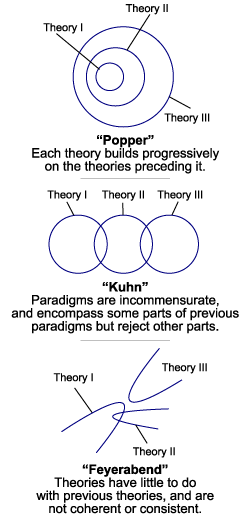
Originally Posted by
Evolution

I am similar in Popper's belief that unscientific claims, when dogmatic, become a problem when people in positions of power assert these questionable "truths" on the populace. Popper's standards for truth is related to who is claiming the truth and the kind of power the person has over others. This is because of his personal political positions and opinions. Science is used as a way to repel dogmatism, and hence, authoritarianism. This was relevant to the era he lived through. His view on science is very political.




 Reply With Quote
Reply With Quote
